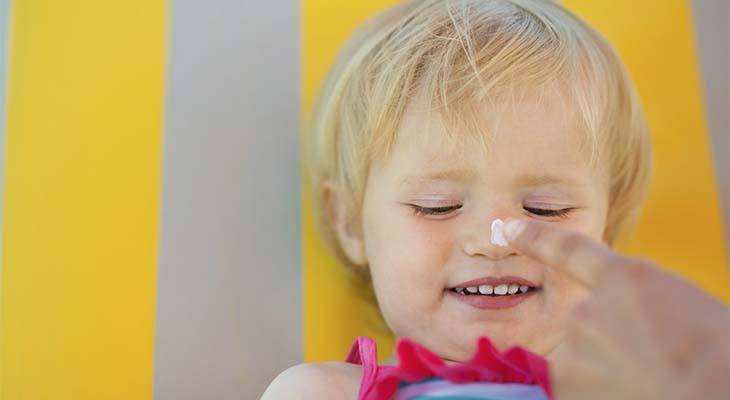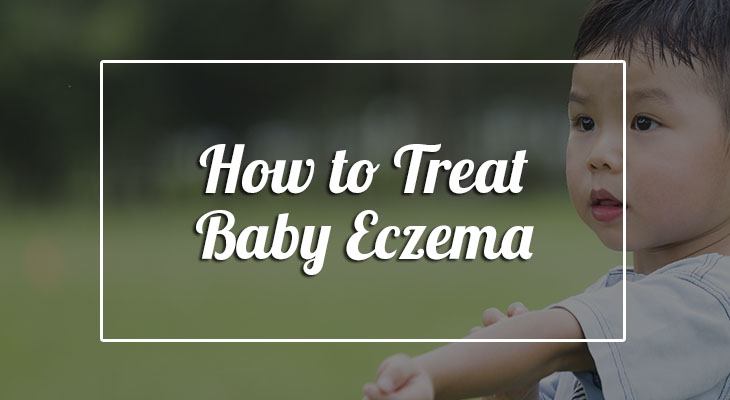Eczema Treatment and What Causes Baby Eczema?
Your toddler keeps crying and he just couldn’t sleep because he is suffering from itchy skin and you don’t know what to do. Welcome to parenting! There’s a big chance he might have eczema. So, you better learn how to treat eczema effectively!
Check out baby eczema pictures on the internet. Does it look like it’s eczema on your 3-month-old baby? Yikes, you’re in it for a bumpy ride. But don’t worry! There are many ways and products out there that could help manage your children’s symptoms.
All you need to do is make a few lifestyle changes and use eczema-friendly products like soap, lotion, and even laundry detergent. Eczema may be an inconvenience but it’s not the end of the world, promise!
Baby eczema vs. acne: what’s the difference?
But then, here’s where it gets a bit complicated still. How sure are you that what your little one has are eczema and not acne? The first thing to do is to differentiate the two: baby eczema vs. baby acne.
Baby acne is caused by hormonal changes your baby is going through after birth. They look like pimple marks and can be seen on the cheeks, temples, and forehead.
Do not use over-the-counter acne treatments, face washes, or lotions. Your baby’s skin is very sensitive at this young age. You might make the acne worse or cause additional skin irritation by using something that is too strong. – Healthline
It does not cause any itching and discomfort and will go away on its own. So, no special ointments needed.
Baby eczema, on the other hand, does not have a clear origin. It can be because of allergies or just having dry skin. Flare ups also cause itchiness and an elevated level of discomfort to your baby. Some babies outgrow eczema but it can also be managed through mild baby products.
Another responsible thing to do in childcare is to consult an expert. A pediatrician can easily tell you if it’s baby acne or a rash that requires special attention. He can help you by giving you useful tips and advice.
So, in this article, we’ll explore:
- Baby psoriasis
- Baby rash
- What is eczema in babies?
- How to get rid of baby eczema
- What causes eczema in babies?
- What to use for baby eczema?
- Baby eczema treatment – coconut oil
- Baby eczema natural remedies
- Eczema in babies – foods to avoid
Baby Psoriasis

Psoriasis does not have an apparent cause as of the moment, but most experts think that it’s an autoimmune disease. This means that your baby’s immune system can mistake his skin cells to be foreign and harmful and that’s why it attacks.
Baby psoriasis is rare as the disease most develops typically in adults. However, that doesn’t mean it’s possible for your baby to have it. They look like diaper rashes and are usually found on your baby’s bottom.
If these diaper rashes keep staying even after months of treatment, there’s a big chance its psoriasis. Treating baby psoriasis can be complicated because there’s no clear evidence of the effects psoriasis medicine have on babies.
In most cases, topical steroids may be prescribed to fight this disease. But you can also try using special lotions and creams to keep your baby’s skin well-moisturized.
Baby Rash
Let’s get things straight first so you won’t keep panicking. Rashes (83) are common and most babies will get them.
It’s normal for babies to develop rashes from as early as a few days old, as their sensitive skin adapts to a different environment. – NHS Choices
They can be caused by a number of things: from allergies, viruses, bacteria, and so on. Some rashes won’t even itch or create any sort of discomfort. Most rashes are not harmful and can go away on their own.
But not all. If you find that your baby is feeling uncomfortable or incredibly sick, then his rashes might be indicative of something worse. Take him immediately to your doctor. Baby rashes can be caused by serious diseases like measles, chicken pox, scarlet fever, and etcetera.
It can also be caused by some kind of eczema like atopic dermatitis or seborrheic dermatitis. While some rashes are caused by genetics, there are a few ways to help prevent them from occurring.
One way is to avoid using strong and harsh hygienic products. Make sure to get one that’s specifically for babies or is gentle enough for your baby’s skin. Bathe oils and creams will also go a long way if you want to keep baby’s dry skin moisturized. Lastly, change diapers regularly and have a proper regular hygiene routine.
What is Eczema in Babies?

To practice better eczema care, you should probably know what eczema is first.
So, how do you know if your baby has eczema?
Eczema shows up as red, crusty patches on your baby’s skin. It often feels dry and itchy. It also shows almost anywhere in your baby’s body.
Eczema can happen because your baby’s body isn’t producing enough ceramide which makes his skin rough and dry, causing it to become irritated. Other triggers include genetics and allergic reactions to certain types of food and irritants. You might even have to change your regular bathing products to a skin friendlier (like an organic wash) and a gentler one.
But don’t worry! Eczema is very treatable and it can even go away on its own as your baby grows up.
How to Get Rid of Baby Eczema
While it is highly treatable and manageable, you cannot get rid of eczema permanently. But with proper lifestyle changes and care, it is possible for your baby to live an almost eczema-free life.
What Causes Eczema in Babies?
So, why do babies get eczema? No one really knows for sure. Baby eczema causes can be triggered by a lot of things. If a parent has eczema or if there’s a history of eczema in the family, your baby’s chances of getting it is high.
Likewise, his nutrition can also have an effect. There might be food triggers he’s been eating that causes eczema in the first place.
If you don’t manage eczema soon, an eczema flare can hinder the development of your child. Toddler milestones might be inhibited for children prone to eczema.
What to Use for Baby Eczema?
That’s why using products specially formulated for baby eczema essential. Luckily for you, most of them can be found in stores and even online. Amazon offers many eczema-safe products that you can choose from.
There are numerous ways to go about choosing. You can opt for creams created by the top doctors in the world using modern, medicinal technology. But you can also take the option of going natural.
Baby Eczema Treatment – Coconut Oil
One effective organic treatment is using coconut oil. Organic virgin coconut oil has antibacterial and anti-fungal properties that can help lessen rash formation. It also contains lauric acid, a type of saturated fat that can combat different bacteria and viruses.
Lauric acid is highly absorbable so it can help your baby’s skin stay super hydrated and well-moisturized. Not only that! Coconut has anti-inflammatory properties that can soothe your baby’s skin and lessen his discomfort.
But parents, beware! If your baby is taking medications, don’t use coconut oil as it can have worsening effects when combined specific types of medicine. It might be best to talk to your pediatrician first before trying this out.
Read this post for the best coconut oil to use for your baby.
Baby Eczema Natural Remedies

There are tons of other natural remedies you can try out. It doesn’t even have to be topical ointments like a baby eczema cream. You can change your baby’s diet or create a nice bath for him, as well.
Seaspray and magnesium baths can help soothe your baby’s rough and irritated skin. Food supplements like fermented cod oil, probiotics, and gelatin can also alleviate the discomfort created by eczema.
There are so many things on the internet that you can try out. Just remember to talk about it with your doctor first. To learn more about using natural remedies to heal baby eczema, read this article.
Eczema in Babies – Foods to Avoid
There are some food items that you can remove (or at least, limit) from your baby’s diet to help manage his eczema episodes. If your baby has allergies, it can increase the symptoms of eczema. Some common allergy triggers are soy, dairy, and nuts.
You might also like to limit fish and gluten from his diet. Sugar can also have an adverse effect so it’s also good to limit food that has high sugar content.
However, fatty fish rich with omega-3 fatty acids is good for your baby. Food that is high in probiotics or quercetin is also good options to try out. Apples, blueberries, broccoli, and kale are some examples of the food your baby can eat safely. Check out this post on more food to avoid.


